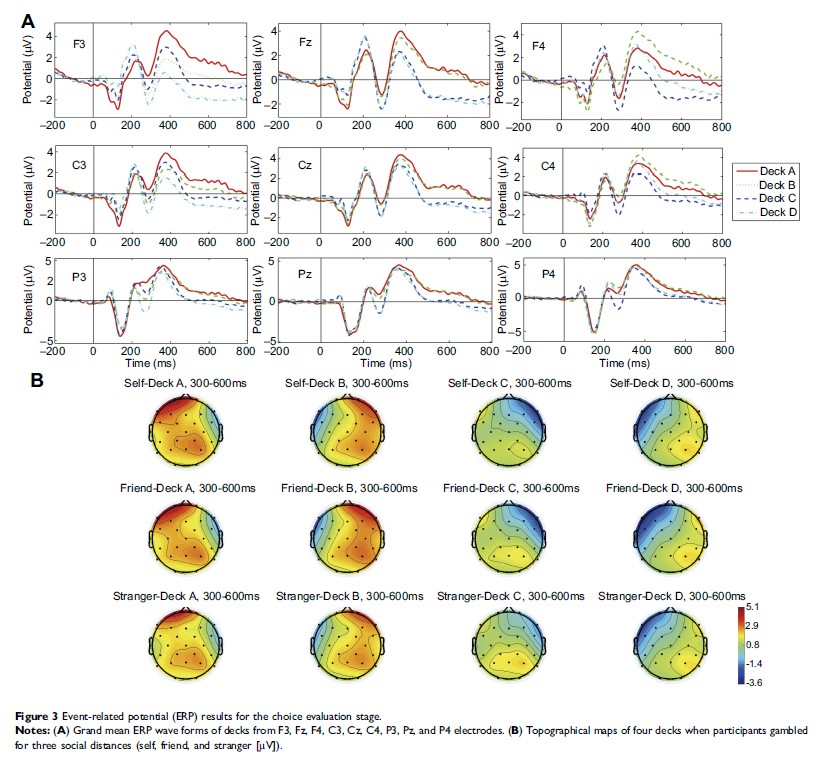9 0 8 1 0
论文已发表
注册即可获取德孚的最新动态
IF 收录期刊
- 2.6 Breast Cancer (Dove Med Press)
- 3.9 Clin Epidemiol
- 3.3 Cancer Manag Res
- 3.9 Infect Drug Resist
- 3.6 Clin Interv Aging
- 4.8 Drug Des Dev Ther
- 2.8 Int J Chronic Obstr
- 8.0 Int J Nanomed
- 2.3 Int J Women's Health
- 3.2 Neuropsych Dis Treat
- 4.0 OncoTargets Ther
- 2.2 Patient Prefer Adher
- 2.8 Ther Clin Risk Manag
- 2.7 J Pain Res
- 3.3 Diabet Metab Synd Ob
- 4.3 Psychol Res Behav Ma
- 3.4 Nat Sci Sleep
- 1.9 Pharmgenomics Pers Med
- 3.5 Risk Manag Healthc Policy
- 4.5 J Inflamm Res
- 2.3 Int J Gen Med
- 4.1 J Hepatocell Carcinoma
- 3.2 J Asthma Allergy
- 2.3 Clin Cosmet Investig Dermatol
- 3.3 J Multidiscip Healthc

社交距离可调节不确定决策的过程:来自事件相关电位技术的证据
Authors Guo H, Song H, Liu Y, Xu K, Shen H
Received 2 April 2019
Accepted for publication 30 July 2019
Published 21 August 2019 Volume 2019:12 Pages 701—714
DOI https://doi.org/10.2147/PRBM.S210910
Checked for plagiarism Yes
Review by Single-blind
Peer reviewers approved by Dr Colin Mak
Peer reviewer comments 2
Editor who approved publication: Professor Igor Elman
Purpose: Social distance affects risk perception in uncertain decision-making, but how this effect works and the mechanism of how social distance influences the early processing stages of uncertain decision-making are still unclear. This investigation aimed to explore how social distance influences risk-taking during uncertain decision-making using the Iowa Gambling Task with recording of event-related potentials.
Methods: A total of 57 healthy subjects (36 female) participated in the modified single-choice Iowa Gambling Task when they gambled based on three quantified social distances (self, friend, and stranger). The social distance between participant and beneficiary was quantified on a scale of 0–100 points, with 0 representing self, 5 representing a close friend, and 100 representing a stranger.
Results: Three stages of uncertain decision-making were analyzed. Behavioral results showed that social distance worked interactively with choice frame, and high social distance made people choose a more advantageous deck and a less disadvantageous deck than low social distance. The P300 in the choice-evaluation stage, which reflects stimulus discrimination, directly proved this result by showing that gambling for a stranger caused higher P300 when evaluating an advantageous deck and lower P300 when evaluating a disadvantageous deck than for others. Decision preceding negativity in the response-selection stage represents the anticipation of risky choices: this was larger with high social distance when choosing a disadvantageous deck. Feedback-related negativity and feedback-related P300 had motivational significance, showing smaller amplitudes when gambling for a stranger than for oneself.
Conclusion: These results provide evidence that social distance works interactively with choice frames of uncertain decision-making. People at high social distance are more risk-taking in an advantageous frame and more risk-avoid ant in a disadvantageous frame.
Keywords: uncertain decision-making, social distance, risk-taking, Iowa Gambling Task, event-related potential, ERP
